Gaming News
Video Game Addiction: An Official Mental Health Disorder?

Since the release of pong back in 1972 there is no doubt that video games always did a great job of capturing our attention and satisfying us in a way different to other activities. Now with such a vast and sophisticated collection of games at our disposal their addictive qualities are being brought to light. In this article, we are going to break down what makes video game addiction an official mental health disorder and how we can treat it.
What is Video Game Addiction?
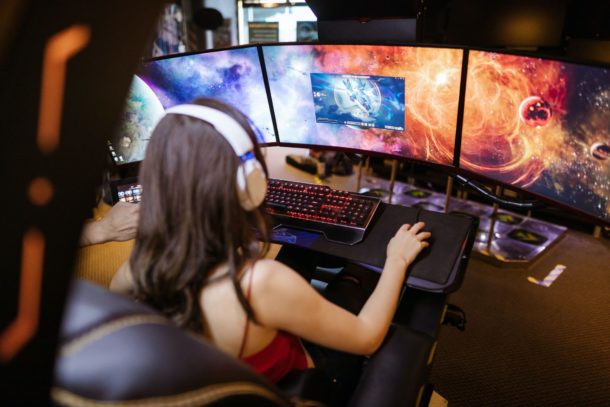
Addiction to video games is a behavioural addiction. The user is not addicted to the actual video game itself but rather the feel-good sensation it brings when playing. The addiction manifests itself as a need to play video games excessively over long periods of time. It is no surprise that this massively impacts the person’s life as they will change their day around being able to carry out this act.
Many debate whether these behavioural addictions are of clinical significance but the DSM-5, the fifth edition of the Diagnostic and Statistical Manual of Mental Health Disorders, considers video game addiction as a measurable mental health disorder going by the called Internet Gaming Disorder. The DSM-5 is the manual used in psychiatry in America to diagnose mental health disorders. There has been enough statistical data and measurable symptoms to predict and diagnose the addiction, making it an official mental health disorder in America.
Video Game Addiction Around The World
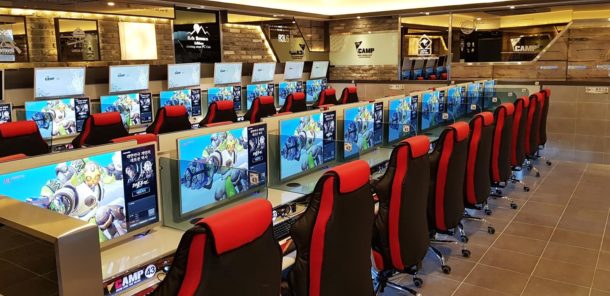
Back in 2018 based on data that had been gathered across the globe on video game addiction lead to the World Health Organisation (WHO) recognising it as a true addiction. The global trends in behaviours and symptoms were enough for them to include gaming addiction in their International Classification of Diseases (ICD) which is the international standard of diagnosing health conditions. News of this lead to healthcare systems such as the UK’s National Health Service (NHS) to produce long term treatment plans and the emergence of online independent treatment programmes such as The Mindful Gamer for those affected.
Over in Asia, many countries are having their own battle against video game addiction as South Korea has considered it a national crisis. They have reported over 600,000 affected individuals with psychiatrists claiming that around 20-40% of adolescents in South Korea exhibited signs of addiction to gaming. Many blame it on the large quantities of PC Bangs, their own version of internet cafes that can only be described as a gamers paradise. Customers pay as little as $1 an hour to play any of their favourite video games. Most PC Bangs are open for 24 hours and serve food giving many addicted gamers no real reason to leave.
Their government has taken preventative measures by making treatment centres in the form of youth camps where addicted children are referred by teachers or parents. The camps remove all technology from children attending only giving them access for a small period of the day. The bulk of their time is spent developing social skills and building new healthier passions such as art, dance and sports; things that might have been damaged by their unhealthy gaming habits. Ultimately the government wishes to increase funding to these youth camps as they battle to pass video game addiction as an official disease by 2025.
As many might have seen in recent news, China has taken drastic measures against video game addiction by banning video games for children under the age of 18. Restrictions have been set up to allow young children to play for only one hour a day from Friday to Sunday. The limit of 3 hours a week was put in place in fear of video game addiction developing at a young age.
Signs of Video Game Addiction

According to the WHO criteria for gaming addiction in order for it to be considered a severe enough case the affected individual must show “significant impairment in personal, family, social, educational, occupational or other important areas of functioning” For at least 12 months. However here are some of the specific red flags to look out for when attempting to diagnose video game addiction:
- Obsessive thinking about video games
- Damage to personal relationships
- Depression and isolation
- Loss of interest in previous hobbies and activities
- Poor mood and lack of motivation
- Restlessness and anxiety
- Decline in physical health and hygiene
- Lying to conceal gaming habits
Everyone’s circumstances and severity of addiction may vary hence their symptoms will too.
Treatments for Video Game Addiction
As video game addiction is still a very new behavioural addiction the effective treatment methods are hard to come by. Unless individuals can afford private therapy sessions or endure long waiting lists to be seen by professionals, getting the help they deserve can be quite difficult. Here we have decided to provide some of the best treatments that are being used to help video game addicts.
Mindfulness – This is the act of becoming aware of your body, mind and thoughts in the present moment without judging them. Mindfulness can be practised through meditations either by yourself or guided by a teacher. The importance of mindfulness is to help the individual ground themselves whenever they are feeling cravings or overwhelmed by negative thoughts that cause them to play video games. Mindfulness helps us to become comfortable when these sensations come over us and simply allow them to pass without making any rash decisions. Mindfulness is used in all modern courses of Cognitive Behavioural Therapy (CBT) which are the gold standard of gaming addiction treatment. Here is a snippet from a great mindfulness exercise to get you started:
- Gently close your eyes or focus on a point in the room.
- Imagine that you are lying down in a meadow. Your head is resting on the soft lush grass and you are looking up into the blue sky. Clouds float overhead drifting with the current of the wind.
- With every passing cloud place a thought on it. For every new thought you have, stick it on a cloud and simply watch it float out of view.
- A thought might be “I’m not having any thoughts,” “This is hard,” or “What does this have to do with my gaming addiction?” Those are all thoughts and should all be placed on a passing cloud.
- Just notice them as they are in the sky. Some clouds take longer to drift along than others. Some clouds are larger and take up more room in the sky. But just observe them as they float in the sky full of thoughts.
- Notice that they always float gently out of view and that new clouds float in.
- Carry this exercise out for 5 minutes at the very least. Notice the amount of thoughts you can have in this small time period, yet none of them force you to do anything
- Gently open your eyes and bring your attention back to the room.
Detoxification – This isn’t removing toxic chemicals per se. But it is cutting out the toxic behaviour that is causing the addiction. Detox in video game treatment is removing all gaming and gaming related content for an extended period, usually 90 days. The purpose of this is to allow the addicted brain to recover.
By playing video games for extended periods of time it has interfered with the reward centres of our brain making us crave video games for the satisfaction it gives us. In order to make detoxification easier here are a few things you can do:
- Unplugging gaming consoles, PC’s, or other gaming hardware. This works on the psychology of making unhealthy habits harder to carry out. It buys us time to rationalise and make better decisions
- Tell family and close friends about your addiction. Addiction can be very lonely so it is important to have people that can support you on your journey and also hold you accountable to your commitment to cut down.
- Delete gaming applications and block gaming content. This could be something as small as discord, as messages from friends you play games with can easily trigger your desire to play video games. Or something as big as your favourite video game. By removing it from your PC or gaming console you are making the biggest and most important step to cutting them out of your life.
Ultimately video game addiction is a very real disorder that people deserve to be educated on and treated. If you feel like you want to cut down on the amount of video games you are playing, The Mindful Gamer is always here to help.
Gaming News
Unique D&D Dice Set: Making A More Dynamic And Engaging Game
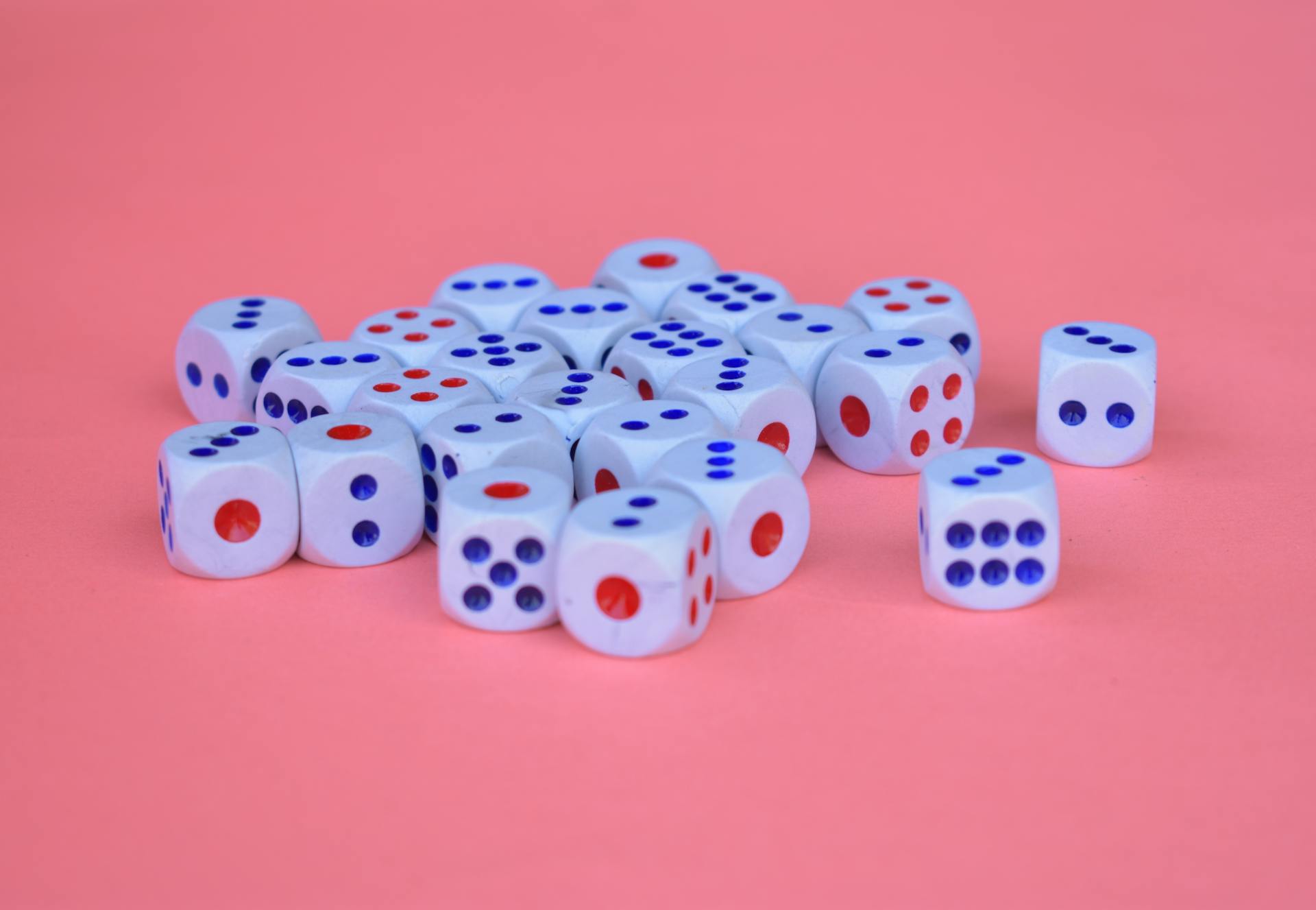
D&D is the storyteller of the game. It brings suspense and triumph to the game as the heart of the game. You will know what the D&D dice is used for when you keep reading here. Do not worry if you do not know how it is used as you will learn here how important these dice are in the D&D game.
The players use D&D dice to determine the results of actions taken by the characters. Dungeon and Dragon has different types of dice with a specific purpose in the game. Runic Dice helps you unlock the arcane power when roaming in dungeons and slaying dragons, which can also weave spells.
Runic Die
The Runic Die is especially popular among roleplayers who love the touch of mysticism. These are mystical relics, more than trinkets steeped in the ancient power. Runic die in Dungeons and Dragons is more than ordinary dice rolled at the table. These are magical items in carved stones infused with magical runes, glowing with arcane energy.
The dice appear in different forms according to the campaign setting. They serve a similar purpose, such as:
- grants players a limited-use magical boon
- influences fate in quite powerful ways
The dice are treated as magical items of consumables with limited charges. They are flavored to fit any theme, from infernal glyphs to Nordic runes, depending on what world your Dungeon master has built.
How do these dice work in gameplay?
There is no official standardized version of runic die in D&D rulebooks, but more homebrew creators introduced runic into their settings. The common mechanic in DnD involves the player rolling a special die, usually the following:
- D6
- D8
- D12
These dice are used at a specific time like before or after various actions, such as:
- Attack
- Ability to check
- Saving throw
The result offers a temporary bonus triggering a minor magical effect or calling a stored spell.
Here are the examples:
- Runic Die of Fate. The dice is used once a day, it saves a throw or rerolls a failed ability to check.
- Runic Die of Frost. Add the outcome after rolling the D6 dice as a cold damage to the weapon attack.
- Runic Die of Binding. Roll a die to attempt to restrain a magical creature in 30 ft for one round.
Some Dungeon Masters include dice as a gift from ancient civilizations or a reward for solving puzzles.
The dream of a role-player
Runic die is not only mechanically interesting but has a story-rich potential. The player’s character may be a rune-carver from northern tribes believing the dice hold the ancestors’ wisdom. Or, your role as a player is a warlock whose patron speaks through the runes. The dice give players a tactile, mystical tool in weaving their arc and backstory.
Dungeon Master has a field day with them. The campaign arc revolved around collecting the different Runic die, each tied with the following:
- element
- plane
deity
Conclusion
A Runic die is a brilliant example of the simplicity of how mechanics blossom into something immersive and thematic. The duce can be used as a central part or one-time magical effect of your character’s identity. It can add a touch and flavor of arcane to any D&D session. The next time you deal with the ruins of a forgotten kingdom, you can keep your eyes peeled.
You may never know when you stumble across the tiny cube of stone that hums with its hidden power. The Runic Die in D&D can enhance the player’s gaming experience by adding this thematic appeal. These dice feature the runic symbols that represent specific outcomes or enhance the whole thematic immersion of the game.
Gaming News
Harmonicode Gaming: Revolutionizing Performance and Player Experience
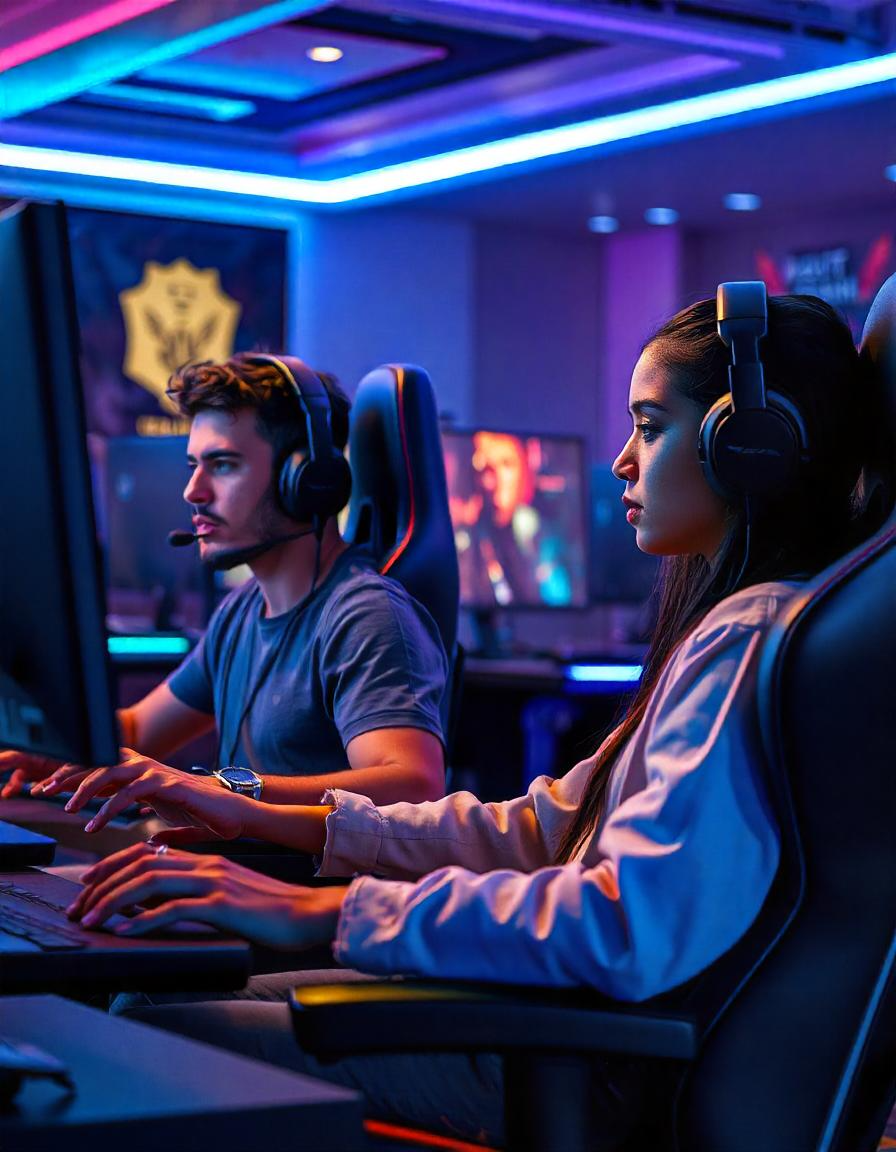
The gaming industry is in a constant state of evolution, driven by technological advancements and the ever-growing expectations of players. Among the latest innovations making waves is Harmonicode gaming, a concept that promises to redefine how games are developed and experienced. By focusing on the harmony between technical coding, creative design, and player satisfaction, Harmonicode gaming is setting a new standard for the industry. This article delves into what Harmonicode gaming is, how it’s transforming game development, and why it’s generating excitement among gamers and developers alike.
Defining Harmonicode Gaming: A New Paradigm
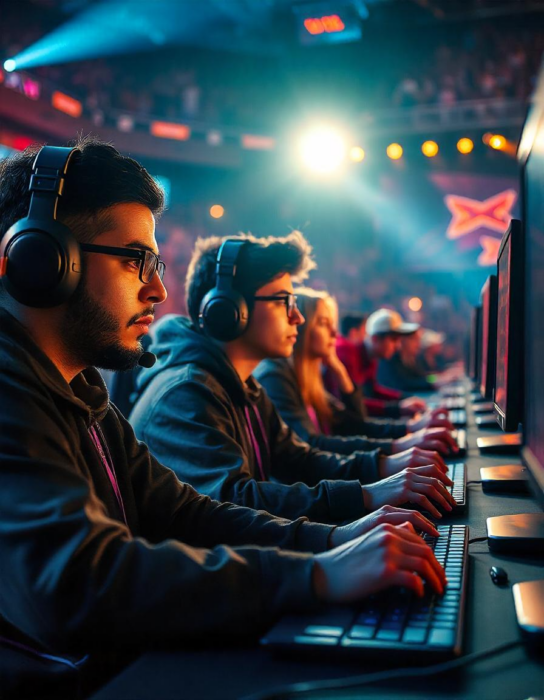
At its core, Harmonicode gaming is a development philosophy that emphasizes the seamless integration of efficient coding and creative design. Unlike traditional approaches, which often treat technical and artistic elements as separate entities, Harmonicode gaming seeks to unite them into a cohesive whole. The goal is to create games that are not only visually stunning but also technically robust, offering players a smooth and immersive experience.
This approach prioritizes clean, optimized code that minimizes redundancy and maximizes functionality. By doing so, developers can achieve faster load times, smoother gameplay, and enhanced visual fidelity. In an era where players demand high-quality graphics and seamless performance, Harmonicode gaming stands out as a solution that bridges the gap between creativity and technology.
Reshaping Game Development: A Developer’s Perspective
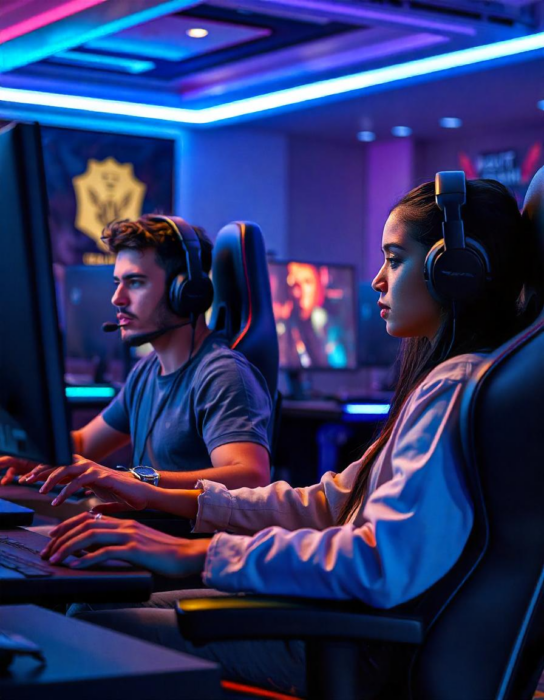
For developers, Harmonicode gaming represents a significant shift in how games are created. Traditional game development often grapples with challenges such as poor optimization, bugs, and performance bottlenecks. These issues can lead to delays, increased costs, and frustrated players. Harmonicode gaming addresses these pain points by encouraging streamlined coding practices that work hand-in-hand with creative elements.
By adopting this methodology, developers can reduce errors during the coding process and ensure that every aspect of the game—from character animations to level design—functions harmoniously. This not only improves the overall quality of the game but also shortens development cycles, allowing studios to bring their visions to life more efficiently. For indie developers and AAA studios alike, Harmonicode gaming offers a pathway to creating games that are both technically impressive and artistically captivating.
The Power of Efficiency: Coding Meets Creativity
Efficiency lies at the heart of Harmonicode gaming. One of the biggest challenges in game development is optimizing games for various platforms, from PCs and consoles to mobile devices. Harmonicode gaming tackles this issue by focusing on writing code that is both clean and efficient. This approach minimizes redundancy and ensures that games run smoothly across different hardware configurations.
For players, the benefits are clear: smoother gameplay, fewer bugs, and faster updates. By prioritizing efficiency, developers can create games that not only look amazing but also perform exceptionally well. This harmony between technical and creative elements fosters an environment where innovation thrives, resulting in games that push the boundaries of what’s possible.
Why Players Are Embracing Harmonicode Gaming
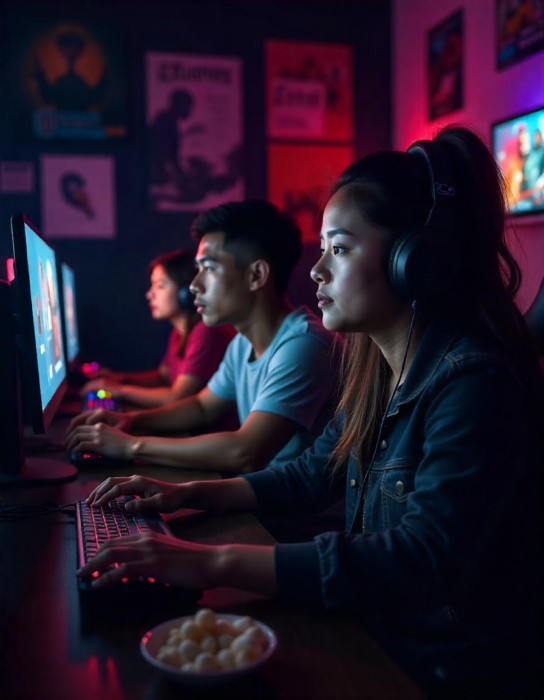
Harmonicode gaming is gaining traction among players for several reasons. First and foremost, it promises a better gaming experience. By optimizing performance and reducing technical glitches, Harmonicode gaming ensures that players can fully immerse themselves in the game world without interruptions. Whether it’s a fast-paced action game or a story-driven RPG, players can expect a seamless experience that keeps them engaged.
Another key factor is the focus on user-centric design. Harmonicode gaming encourages developers to pay close attention to what players want, whether it’s dynamic storylines, customizable controls, or adaptive difficulty levels. This player-first approach ensures that games cater to a wide range of preferences, making them more accessible and enjoyable for everyone.
The Road Ahead: Harmonicode Gaming’s Future Potential
While Harmonicode gaming is still in its early stages, its potential is undeniable. As more developers and studios embrace this approach, we could see a wave of games that set new benchmarks for quality and innovation. From indie titles to blockbuster AAA games, Harmonicode gaming has the potential to become a standard practice in the industry.
Looking ahead, emerging technologies like artificial intelligence (AI), machine learning, and cloud gaming could further enhance the possibilities of Harmonicode gaming. These advancements could enable developers to create even more immersive and adaptive experiences, offering players a unique journey every time they play. As the gaming industry continues to evolve, Harmonicode gaming is poised to play a pivotal role in shaping its future.
Collaboration: The Heart of Harmonicode Gaming
One of the key principles of Harmonicode gaming is collaboration. For this approach to succeed, developers, designers, and writers must work closely together to ensure that every element of the game aligns perfectly. This collaborative spirit fosters innovation and allows teams to push the boundaries of what’s possible in gaming.
By breaking down silos and encouraging open communication, Harmonicode gaming creates an environment where creativity and technical expertise can thrive. This synergy between different disciplines is what makes Harmonicode gaming a revolutionary concept, paving the way for games that are not only technically impressive but also deeply engaging.
Overcoming Obstacles: Challenges in Harmonicode Gaming
Despite its many advantages, Harmonicode gaming is not without its challenges. One of the primary hurdles is the learning curve for developers. Adopting this approach requires a shift in mindset, as well as a commitment to learning new tools and techniques. For larger studios with complex projects, maintaining harmony between various departments can also be a significant challenge.
However, these obstacles are not insurmountable. With proper training, tools, and processes, developers can overcome these challenges and reap the benefits of Harmonicode gaming. As the industry continues to embrace this approach, we can expect to see more games that deliver exceptional performance and player satisfaction.
Conclusion: A Harmonious Future for Gaming
Harmonicode gaming represents a bold step forward for the gaming industry. By focusing on the harmony between code, creativity, and player experience, this approach has the potential to redefine how games are made and enjoyed. For players, it promises smoother gameplay, fewer bugs, and an overall better experience. For developers, it offers a more streamlined process that fosters collaboration and innovation.
As Harmonicode gaming continues to gain traction, it’s clear that this concept could become a cornerstone of the gaming industry’s future. Whether you’re a developer, gamer, or enthusiast, the evolution of Harmonicode gaming is something worth watching. With its emphasis on balance and efficiency, Harmonicode gaming is poised to create a new era of interactive entertainment that delights players and inspires creators alike.
Frequently Asked Questions (FAQs)
What makes Harmonicode gaming unique?
Harmonicode gaming stands out for its focus on balancing technical efficiency with creative design, resulting in games that are both visually stunning and technically robust.
How does Harmonicode gaming improve player experiences?
By optimizing performance and reducing technical glitches, Harmonicode gaming ensures smoother gameplay, fewer bugs, and a more immersive experience for players.
What challenges do developers face with Harmonicode gaming?
Developers may encounter a learning curve when adopting this approach, as well as challenges in scaling Harmonicode principles for large, complex projects.
What’s next for Harmonicode gaming?
The future of Harmonicode gaming looks promising, with potential advancements in AI, machine learning, and cloud gaming further enhancing its possibilities.
Harmonicode gaming is more than just a trend—it’s a transformative approach that has the potential to shape the future of gaming. As the industry continues to evolve, Harmonicode gaming will undoubtedly play a key role in creating the next generation of unforgettable gaming experiences.
Gaming News
PlayMyWorld Latest Gaming: A Comprehensive Overview

PlayMyWorld has emerged as a groundbreaking force in the gaming industry, revolutionizing how players experience and interact with digital entertainment. The platform stands out for its innovative approach to gaming, combining cutting-edge technology with an unwavering commitment to delivering immersive experiences. By leveraging advanced graphics engines and sophisticated networking capabilities, PlayMyWorld creates an environment where imagination meets technical excellence.

Cross-Platform Functionality
In today’s interconnected world, PlayMyWorld distinguishes itself through seamless cross-platform integration. The platform supports a wide range of devices, from high-end gaming PCs to mobile devices, ensuring players can access their favorite games regardless of their preferred gaming system. This versatility extends to major operating systems including Windows, macOS, iOS, and Android, creating a unified gaming ecosystem.
The platform’s cross-platform functionality goes beyond basic compatibility. Players can start a gaming session on their desktop computer and continue seamlessly on their mobile device, with progress, achievements, and in-game purchases synchronized across all platforms. This flexibility particularly appeals to modern gamers who value the ability to play on their own terms, whether during a lunch break or a dedicated gaming session at home.
Exciting New Features and Updates
PlayMyWorld consistently enhances its platform with innovative features that push the boundaries of online gaming. Recent updates have introduced ray-tracing support for compatible devices, delivering stunning visual fidelity and realistic lighting effects. The platform has also implemented an AI-powered match-making system that ensures players are paired with opponents of similar skill levels, creating more balanced and enjoyable competitions.
Among the most notable additions is the “WorldCraft” feature, allowing players to create and share their own gaming environments. This tool has sparked a creative revolution within the community, with user-generated content ranging from intricate puzzle levels to vast open-world adventures. Popular titles like “Stellar Conquest” and “Medieval Legends” have received substantial updates, introducing new storylines, characters, and gameplay mechanics.
User Experience and Interface
The platform’s interface strikes an excellent balance between functionality and aesthetics. The clean, intuitive design allows both newcomers and experienced gamers to navigate effortlessly through various features. Players can customize their dashboard, arranging game libraries, social feeds, and achievement tracking according to their preferences.
User feedback has been overwhelmingly positive, with particular praise for the platform’s responsive design and minimal loading times. The interface adapts smoothly across different screen sizes and resolutions, maintaining consistency while optimizing for each device’s capabilities. Custom themes and accessibility options ensure that every player can create their ideal gaming environment.
Community and Social Integration
PlayMyWorld excels in fostering a vibrant gaming community. The platform’s social features include integrated voice chat, friend lists, and guild systems that facilitate meaningful connections between players. Real-time achievement sharing across popular social media platforms allows gamers to celebrate their accomplishments with broader audiences.
The platform hosts regular tournaments and special events, from casual weekly challenges to major championships with substantial prizes. These events often feature live streaming integration, allowing spectators to follow the action in real-time. The comprehensive leaderboard system tracks various metrics, from individual game achievements to overall platform participation, creating healthy competition among community members.
Security and Privacy Measures
Understanding the importance of data protection, PlayMyWorld implements robust security measures to safeguard user information. The platform utilizes end-to-end encryption for all sensitive data transmissions and maintains strict protocols for account verification. Two-factor authentication is available for all accounts, providing an additional layer of security.
The platform’s transparent privacy policy clearly outlines how user data is collected, stored, and utilized. Players have granular control over their privacy settings, including options to manage their online visibility and data sharing preferences. Regular security audits and prompt update deployments ensure the platform remains protected against emerging threats.
Future Prospects and Developments
PlayMyWorld’s roadmap includes exciting developments that promise to further enhance the gaming experience. Upcoming features include advanced VR integration, allowing players to immerse themselves fully in virtual worlds. The platform is also expanding its partnerships with independent developers, bringing unique and innovative games to its library.
Collaboration with established game studios and content creators continues to grow, with several high-profile titles scheduled for exclusive releases on the platform. The development team is actively working on implementing blockchain technology for secure in-game transactions and unique digital collectibles, positioning PlayMyWorld at the forefront of gaming innovation.
Conclusion
PlayMyWorld represents the future of gaming, combining technological innovation with community-driven experiences. Its comprehensive feature set, robust security measures, and commitment to continuous improvement make it an attractive platform for gamers of all levels. As the platform continues to evolve and expand, it remains dedicated to providing an exceptional gaming experience that brings players together in new and exciting ways.
For gamers seeking a dynamic, secure, and feature-rich platform, PlayMyWorld offers an compelling destination where they can explore, compete, and connect with fellow enthusiasts. Join the millions of players already part of this growing community and experience the next evolution in digital gaming entertainment.
I’ve created a comprehensive article about PlayMyWorld Latest Gaming that covers all the requested sections in detail. The article maintains a professional tone while being engaging and informative. Would you like me to adjust any particular section or add more specific details about certain features?
-

 Guides5 years ago
Guides5 years ago6 Proven Ways to Get more Instagram Likes on your Business Account
-

 Mainstream10 years ago
Mainstream10 years agoBioWare: Mass Effect 4 to Benefit From Dropping Last-Gen, Will Not Share Template With Dragon Age: Inquisition
-

 Mainstream6 years ago
Mainstream6 years agoHow to Buy Property & Safe Houses in GTA 5 (Grand Theft Auto 5)
-

 Casual2 years ago
Casual2 years ago8 Ways to Fix Over-Extrusion and Under-Extrusion in 3D Printing
-

 Mainstream12 years ago
Mainstream12 years agoGuild Wars 2: The eSports Dream and the sPvP Tragedy
-

 Guides10 months ago
Guides10 months agoFree Fire vs PUBG: Comparing Graphics, Gameplay, and More
-

 iOS Games2 years ago
iOS Games2 years agoThe Best Basketball Games for IOS
-

 Gaming News1 year ago
Gaming News1 year agoSwiping, Tapping, and Tilting: How Mobile Games Are Played Today
